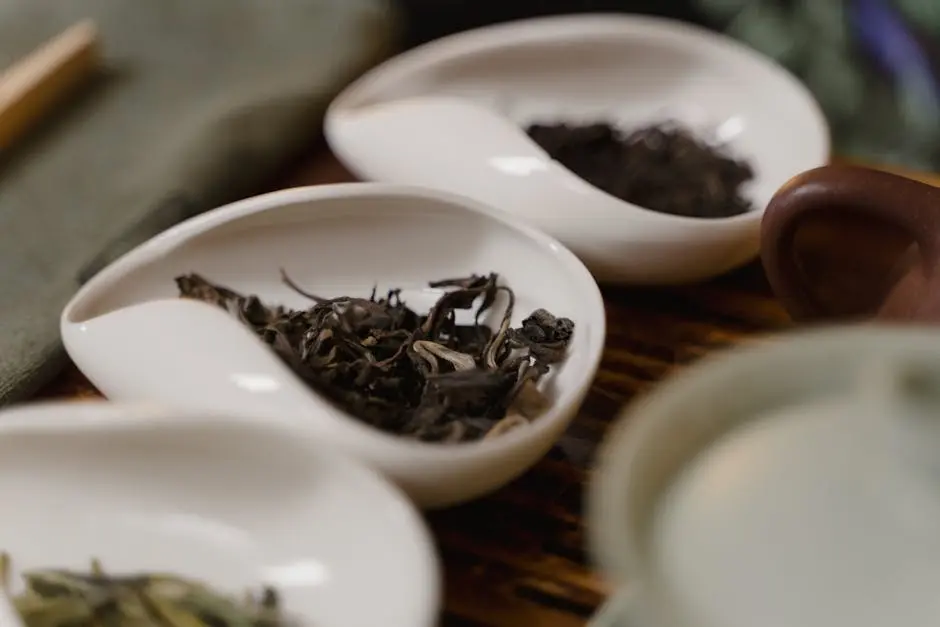Tulsi tea, often revered as ‘Holy Basil’, holds a cherished place in Indian culture and herbal medicine. This blog explores the rich traditions surrounding Tulsi tea and highlights its modern benefits, making it a beloved beverage for health enthusiasts across the globe.
A Glimpse into the History of Tulsi
Tulsi has been revered for centuries in Ayurveda and is regarded as a sacred plant in Hinduism, often associated with the goddess Lakshmi. Understanding its history gives us insight into why it’s more than just a tea.
The origins of Tulsi can be traced back over 5,000 years, and over time, it has been embraced not just for its flavor, but also for its medicinal virtues. Ancient texts celebrated its roles in preventing ailments, which speaks to its enduring legacy.
As it made its way through the ages, Tulsi became a symbol of holistic health, intertwining with spiritual practices that still exist today. Many families have grown Tulsi in their homes, not only for its health benefits but also for the spiritual ambiance it provides.
Cultural Significance of Tulsi in Indian Society
In Indian households, Tulsi plays a vital role not only in rituals but also in daily life. We’ll explore how it is integrated into spiritual practices and family traditions.
The Tulsi plant is often found in a sacred pot in front of Indian homes, where families gather in the evening to pray and reflect. This shared experience helps foster a sense of unity and connection among family members, highlighting its importance beyond just being a plant.
Celebrated during festivals and rituals, Tulsi serves as an offering in prayers, symbolizing purity and the essence of life itself. This deep-seated reverence forms a bridge between generations, making it a living link to one’s heritage and cultural identity.
The Health Benefits of Tulsi Tea
Packed with antioxidants and essential oils, Tulsi tea offers an array of health benefits, including stress relief, improved immunity, and enhanced digestion. We’ll delve into the science behind these benefits.
One of the standout properties of Tulsi is its adaptogenic qualities. This means it helps the body adapt to stress and promotes mental balance. Imagine sipping a warm cup of Tulsi tea at the end of a long day – it’s not just comforting, it’s healing.
Research has shown that Tulsi can lower stress levels, regulate blood sugar, and even combat inflammation. These findings are not just anecdotal; they are backed by scientific studies that recognize Tulsi as a powerful herb in the battlefield for health.
Moreover, its high concentration of vitamin C and other antioxidants makes Tulsi tea a warrior against free radicals. This means that each sip is imbued with potential health boosts, making Tulsi not only a drink of taste but a drink for life.
How to Brew the Perfect Cup of Tulsi Tea
Making Tulsi tea is simple, yet there are tips and variations that can enhance its flavor and health benefits. Discover the best practices for brewing the perfect cup.
To brew Tulsi tea, start with fresh or dried leaves, steeping them in boiling water for about five to seven minutes. The longer you steep, the more potent the flavor and benefits you’ll extract. Adding a slice of lemon or a hint of honey can elevate the experience further.
Feel free to experiment; combining Tulsi with other herbs like ginger or mint can create exciting flavor profiles, making your tea a unique blend each time. This theme of creativity not only honors tradition but also makes every cup a fresh experience.
Modern Uses and Recipes Featuring Tulsi Tea
From refreshing iced teas to delightful lattes and even desserts, Tulsi tea can be versatile. This section shares innovative recipes that allow you to enjoy its flavors in various ways.
Consider a Tulsi iced tea. Simply brew a strong cup and let it cool, then pour over ice, adding fresh fruits like strawberries or orange slices for a refreshing twist. It’s the perfect summer drink that combines tradition with modern flair.
Or, if you’re in the mood for something rich, try a Tulsi latte. Brew strong Tulsi tea and mix it with steamed milk and a hint of honey for sweetness. This creamy drink balances the herbal notes beautifully, creating a comforting beverage perfect for any time of the day.
Tulsi can also star in desserts. Imagine a Tulsi-infused panna cotta or a fragrant Tulsi syrup drizzled over fresh fruit. These recipes not only expand the use of Tulsi in your diet but also help to share its health benefits in delightful ways.
Embrace the Tradition and Benefits of Tulsi Tea
Incorporating Tulsi tea into your daily routine not only fosters a connection to tradition but also supports your overall well-being. Whether enjoyed hot or iced, this herbal drink is a simple yet powerful way to enhance your health.
